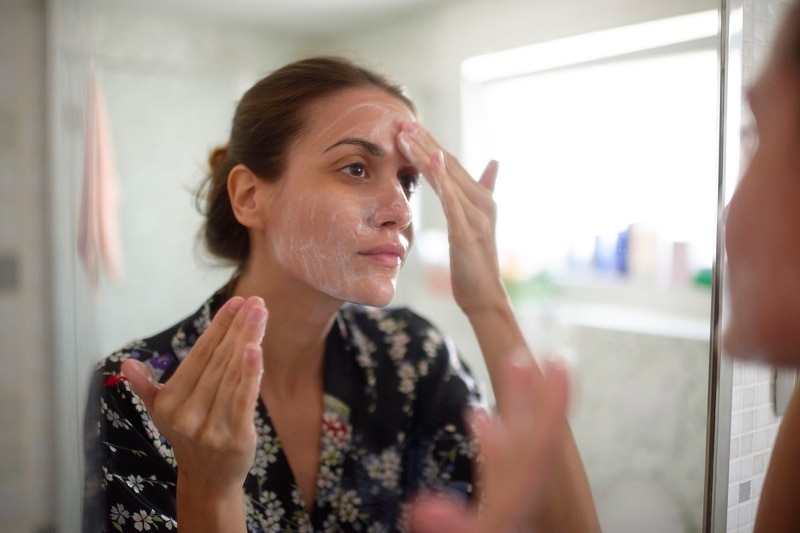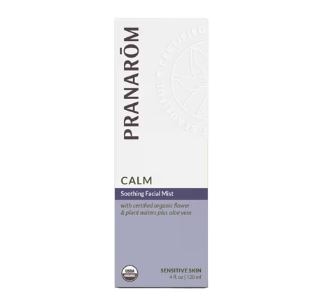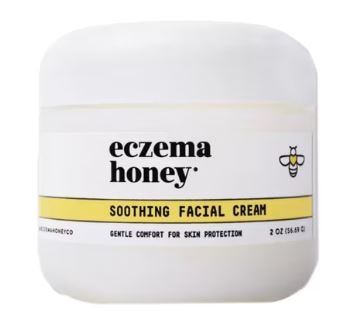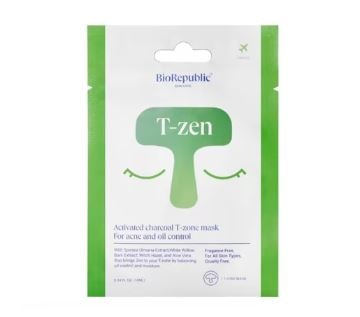Winter’s harsh conditions combined with the hectic holiday season can really wreak havoc on your skin. Overusing makeup remover or scrubbing your face too hard before you expose it to a cold, dry environment also isn’t doing it any favors. Has your face been extra sensitive these days? In that case, your skin barrier might be compromised. But what is the skin barrier exactly and how do you know if it is need of repair?
Dr. Samantha Ellis, a board-certified medical and cosmetic dermatologist at the PotozkinMD Skincare Center in Northern California describes what to watch out for. “A damaged or disrupted skin barrier can look and feel like different things on different people,” she says, “but oftentimes [my clients] will say ‘my skin feels sensitive, its itchy, its burning, its stinging’ or it looks dry, red, flaky or some combination of all of those.” She also advises that when your skin barrier isn’t functioning properly products that normally wouldn’t sting or burn your skin will suddenly become a problem.
What is a Skin Barrier?
“The very top layer of skin cells is called the stratum corneum,” Ellis explains. “It’s what divides the external world from the rest of your skin.” The stratum corneum consists of up to 20 dead skin cell layers – your feet, for example, have more skin cell layers than your eyelids. These skin layers are held together by fats (or lipids) that are secreted by cells deeper in your skin and they are constantly shedding.
“Think of [the skin barrier] as like a brick wall where the bricks are the dead skin cells and then the fat is the mortar holding the skin cells or the bricks together,” she adds, “Typically we use our skin barrier to prevent something called trans epidermal water loss (TEWL) or the loss of water through the skin surface and we [also] use it to protect us from things like bacteria, viruses, allergens [and] irritants.”
4 things that damage the skin barrier:
- Over exfoliating: “If you are struggling with your skin barrier,” Ellis insists, “you cannot have any type of chemical exfoliation in your routine.” Using products with alpha hydroxy acids such as glycolic or lactic acids may seem relatively gentle but if used too frequently, they can further compromise your skin cells. “Also watch out for fruit acids, salicylic acid and physical exfoliation, whether that’s in the form of a scrub or a washcloth or just harsh rubbing when you’re drying your face with a towel,” Ellis advises.
- Active ingredients: “One of the core principles of skin barrier repair,” Ellis asserts, “is eliminating actives from your routine.” Products with retinoids, Vitamin C, kojic acid, harsh cleansers, or anything with an active ingredient in it can irritate the skin. That’s because active ingredients are “physiologically trying to change something about your skin,” Ellis explains. Skin health should take precedence for the skin barrier to be allowed to heal, so consider temporarily cycling out your use of products that brighten, tighten or firm with those that support the skin barrier instead (see below for recommendations).
- The environment: Your outside environment can also play a significant role in the health of your skin. “Sun exposure, intense heat or cold, wind, very low or very high humidity, pollution,” Dr. Ellis says, “These are all things that can negatively impact your skin barrier health.” Air pollutants damage the skin by inducing oxidative stress. Although the skin acts as a biological shield against physical air pollutants, prolonged or repetitive exposure to high levels of these pollutants may promote skin aging along with an increase in conditions including psoriasis, acne, atopic dermatitis, and eczema or even skin cancer.
- Aging: “As we grow older,” says Dr. Ellis, “our ability to make some of the fatty components that support our skin barrier, like ceramides for example, goes down and so mature skin is often more fragile.” The drop in naturally released oil makes skin more prone to conditions related to dryness, such as rough patches and itching. Blood vessels in older, thinner skin are also more likely to break and bruise or become permanently widened. It may become important to moisturize more often as you age even if you didn’t need to do so before.
Ingredients that support skin barrier health
Ceramides: “50% of the lipid matrix that comprises our skin barrier is made up of ceramides” states Ellis. They are naturally made by our skin cells, but they can also be generated synthetically for use in skincare products such as Acure’s Ultra Hydrating Plant Ceramide Daily Facial Lotion, which is packed with this key ingredient.
Niacinamide: It is has only recently become a well-known form of Vitamin B3 and though you might know that it can act as an antioxidant to the skin, Ellis shares that it can also “up regulate production of our own ceramides.” You’ll find just what you’re looking for in TruSkin’s Niacinamide (B3) Facial Serum.
Panthenol: It is a precursor to pantothenic acid, also known as Vitamin B5, and “has been shown to hydrate the skin and to reduce trans epidermal water loss (TEWL),” according to Dr. Ellis. Try Jason’s Revitalizing Citrus Body Wash which contains both Vitamin E and B5, giving your skin much needed hydration and support while it cleanses.
Petrolatum: Also known as petroleum jelly, this crude oil based ingredient has a very greasy, thick occlusive texture which creates a physical, water-resistant barrier on top of your skin. This impermeable barrier seals in moisture, helping to prevent TEWL, but for the same reason, can easily clog your pores, so it is often best to use sparingly.
Squalane and Dimethicone: “Other skincare ingredients to think about are Squalane and Dimethicone,” Dr. Ellis states, “These serve as both emollients as well as occlusives, so they help smooth and soothe the skin as well as decrease TEWL.” Squalane can be found in Burt’s Bees’ Calming Day Lotion With Aloe And Rice Milk and dimethicone is the first constituent in Aveeno’s Daily Moisturizing Lotion.
Humectants: They help draw water to the skin’s surface where it weathers the most use. “Humectant ingredients can be great for the skin barrier,” says Ellis, “So things like hyaluronic acid and glycerin that pull water to the skin’s surface can help keep the skin hydrated and healthy.” Both are present in Glonaturals’ Argan Collection Face Cream.
Plant oils: Ellis recommends argan, jojoba, peanut or coconut oils, “but oat oil and borage oil can also be helpful for the skin barrier.” Because they are related to the skin’s own natural lipids, plant-based oils penetrate easily into the skin’s outer layers, supplementing its lipid content and counteracting moisture loss. And they are a great alternative moisturizing agent for those with skin that is sensitive to preservatives.
Anti-inflammatories: Ingredients that reduce inflammation such as antioxidants including vitamin E or gotu kola are recommended. “Colloidal oatmeal is another good example of an ingredient that’s proven to help the skin barrier by reducing inflammation and irritation” Ellis says. Aveeno’s Soothing Bath Treatment and Avalon Organics’ Intensive Eczema Relief Cream both contain this nourishing all-star ingredient.
How to Repair Skin Barrier Naturally in 5 Steps
- First of all, “remove all potential irritants from your skincare routine and go down to what I call a bland routine” Ellis advises, “But a bland routine is not what I would call a boring routine. It just means we’ve shifted our priorities towards skin support and that means focusing on products that hydrate, moisturize and protect the skin.”
- Cleanse with water in the morning. “I’ve had so many people tell me that just by changing their routine from washing twice a day to just washing in the evening has made their skin less sensitive and overall feel better” explains Ellis. No harsh rubbing when you dry your face either – pat it dry.
- While skin is still damp, apply a hydrating face serum such as Aveeno’s Calm plus Restore Triple Oat Serum for Sensitive Skin which contain well-known humectants such as glycerin that help plump up skin cells as well as oats that have soothing antioxidant properties. A facial serum is also a great way to trap the moisture that was created when you cleansed your face.
- Serums won’t lock in moisture as well as face lotions and creams, so now is a good time to add a dime sized amount of moisturizer to your face. “Calming plant oils, allantoin, squalene, cholesterol and most importantly ceramides,” are good to look for in a moisturizer, Ellis explains, “When your skin barrier is depleted, using ceramides can help repair that barrier and bring it back to its original function.” CeraVe’s Moisturizing Cream for Normal to Dry Skin is a good choice, containing three essential ceramides that work together to lock in moisture and help restore your skin cells.
- Apply sunscreen. “Sunscreen, of course, is going to be essential for a skin barrier routine in the morning and honestly any skin care routine,” Ellis asserts, “But a lot of people don’t realize that your skin barrier helps protect deeper layers of skin from UV damage.” Look for products that contain niacinamide or gotu kola which you already know by now is anti-inflammatory and most importantly, an SPF of at least 15 or higher, such as Acure’s Seriously Soothing Day Cream. With an SPF of 30, it’s the perfect choice, containing not only niacinamide but also panthenol and hydrating aloe.
Don’t fret if your skin has been red, flaky or ultra-sensitive lately. Instead, consider these tips and tricks – adopting a new beauty routine that supports your skin’s ability to protect you will not only lead to less irritation but give you back a lovely glow, even during some of the harshest times of the year!




